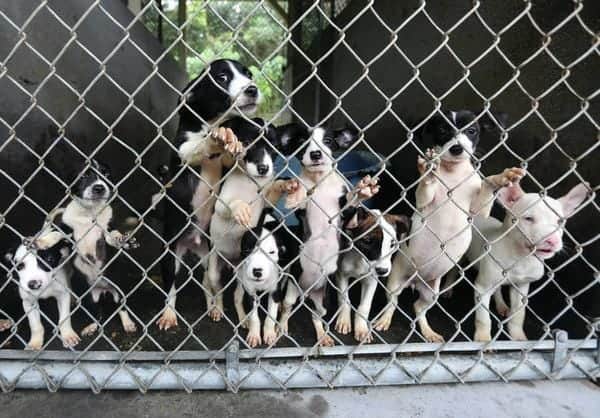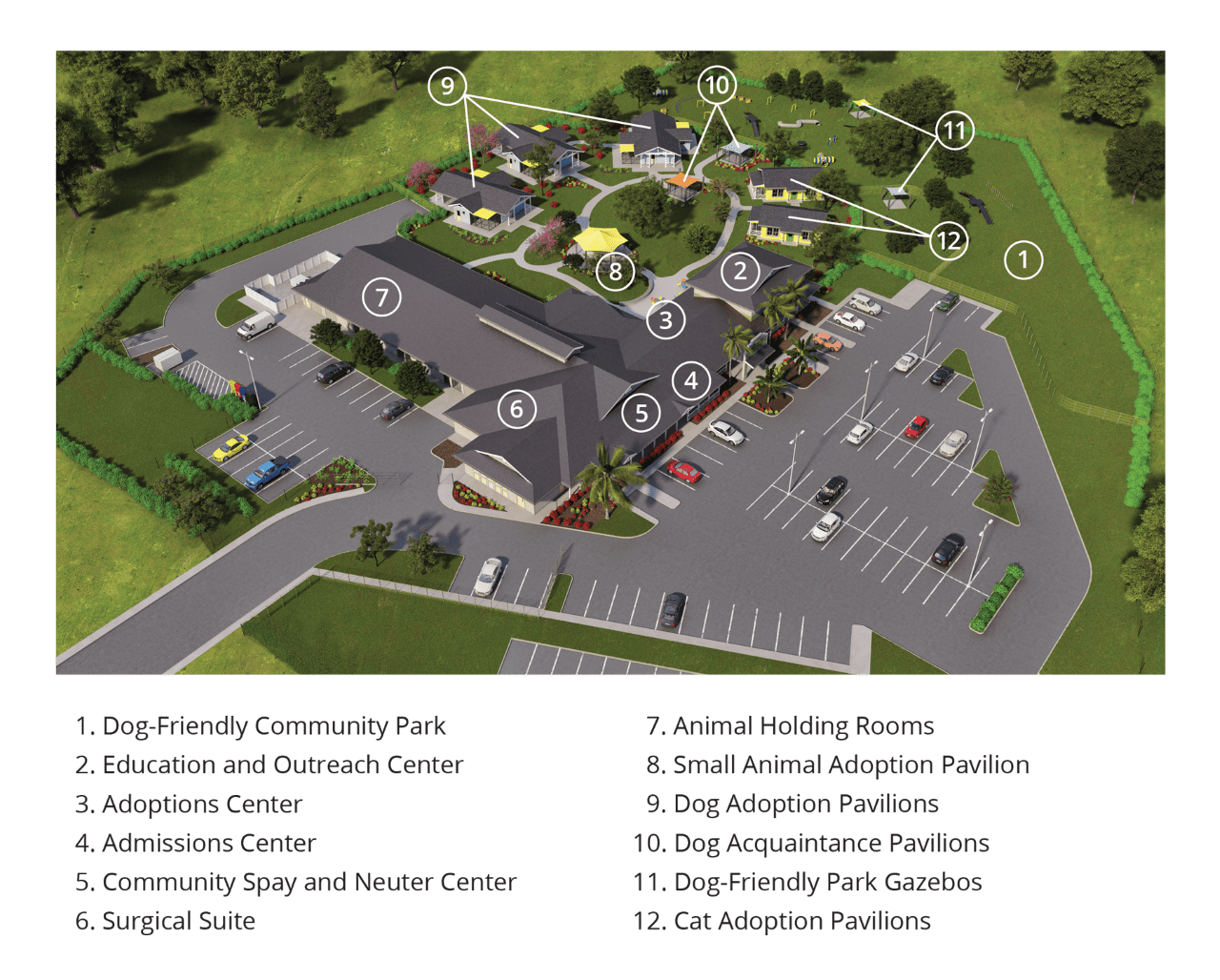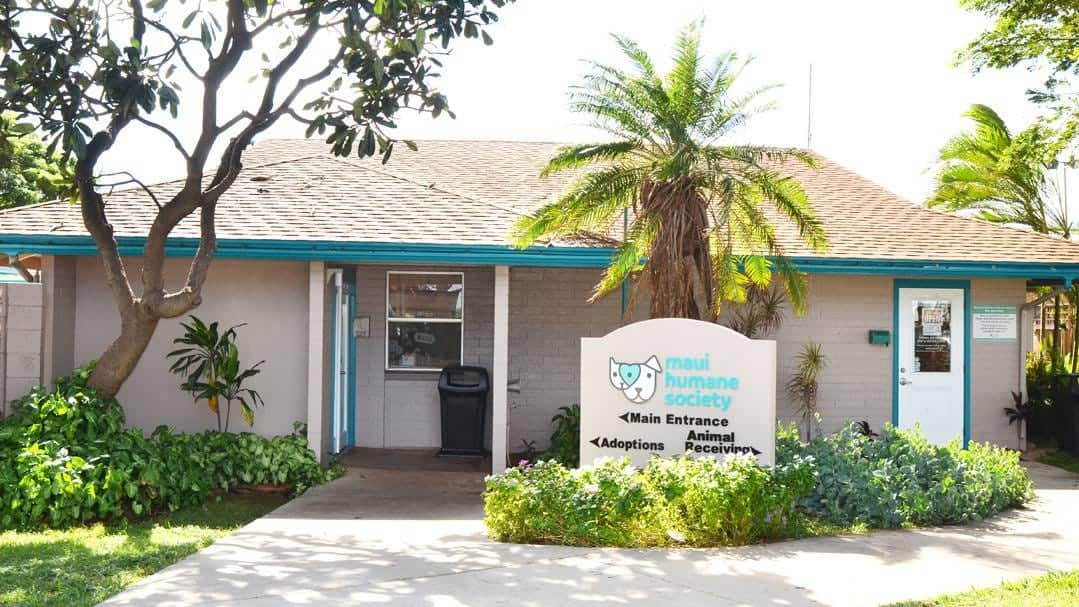
In the tropical paradise of Hawaii, a deep-rooted crisis is unfurling, one that goes beyond the struggles faced by humans alone. Our furry friends, the cherished pets of the island, are also grappling with the ramifications of the state’s burgeoning homeless crisis. Amidst the exorbitant cost of living, an increasing number of families find themselves reluctantly parting ways with their loyal companions, compelled to surrender them due to the financial strain.
Discovering the extent to which Hawaii’s housing crisis has permeated into the lives of our beloved four-legged companions is a solemn realization. The islands, known for their picturesque landscapes and vibrant communities, are now witnessing a disheartening trend where pets are being reluctantly relinquished, signaling the human toll that the high cost of living exacts on families in Hawaii. As the economic strain intensifies on families striving to meet their basic needs, the emotionally charged decision to surrender their precious pet(s) becomes an unbearable reality. The unique bond between humans and their pets, a relationship nurtured through love, trust, and companionship, is now being strained by the harsh realities of financial hardship.

In a recent report, it has become evident that the Hawaiian Humane Society is facing a distressing predicament: numerous dogs are ready and eagerly awaiting adoption, yet the number of potential adopters falls short. Expressing concern over the unprecedented circumstances, Brandy Shimabukuro, the society’s spokeswoman, remarked, “We’ve never seen conditions like this before, where since October we’ve consistently been over capacity and it’s really stretching our resources.” Normally equipped to accommodate approximately 40 dogs, the Humane Society is currently grappling with double that amount. Regrettably, this situation is not unique to Hawaii but rather mirrors the challenges faced by shelters nationwide. However, in Hawaii, the situation is worsened by the lack of affordable pet-friendly housing and the high cost of living. “Inflation is making it that much harder for people so they’re being forced to make really difficult decisions of feeding their pets versus feeding their family,” Shimabukuro added. In an effort to encourage more individuals to provide loving homes for shelter animals, the nonprofit organization has decided to lower adoption fees to $25. This initiative aims to attract a greater number of potential adopters.

Excitingly, the Humane Society has recently opened a new location in Ewa, significantly expanding its capacity to accommodate animals. With this expansion, the nonprofit will have the space to shelter twice as many animals as it currently can. The existing shelter, located in Moilili, with its maximum capacity of 150 pets, is now complemented by the new facility, furthering the organization’s mission to provide refuge and care for a larger number of deserving animals. However, the new facility is quickly filling up too.

Regarding the lower adoption rates for senior pets compared to puppies, the Hawaiian Humane Society offers a different perspective, highlighting the benefits of adopting senior pets due to their reduced training needs. Brandy Shimabukuro further elaborates, saying, “I think a lot of folks look at age as a barrier because they think, ‘Oh, I’m not going to have as much time with this pet,’ or they think they might want a puppy or kitten so I can train them. I think people don’t realize senior pets have just as much life to give, and sometimes they fit lifestyles better because they are lower energy. But that doesn’t mean they can’t provide as much love.” Shimabukuro emphasizes that age should not be a deterrent, as senior pets are capable of forming deep connections and bringing immense joy to their adopters, despite requiring less training. The Hawaiian Humane Society encourages potential adopters to consider the countless rewards and companionship that senior pets can offer.
The Hawaiian Humane Society is just one among many animal rescues across the state grappling with challenges in finding suitable placements for pooches. The pace of adoptions has slowed, and there is a scarcity of foster families available for pets in need. Rescuers find themselves inundated by the overwhelming number of dogs being abandoned, reaching an unprecedented level in Hawaii due to a significant surge in births during the pandemic. Sharing her perspective on the distressing situation, Jennifer Homcy, representing Paws of Hawaii, a fellow nonprofit rescue organization in Hawaii, highlighted the challenges faced by pet owners. She expressed, “Evictions are on the rise and a lot of people are having a really hard time finding rentals where landlords will allow pets. It’s devastating for humans and for dogs.” With no more room in animal shelters and the decreasing availability of foster homes, rescuers say it’s critical that more landlords and families open their homes — and hearts. Eric Tubania, shedding light on the severity of the situation, emphasized the urgency of finding loving homes for these animals, stating, “They all need a home. They all need a family. It’s important because they’re living beings, you know. They’re just as precious as babies.”

Paws of Hawaii, dedicated to finding foster families for homeless animals, goes the extra mile by providing care for severely injured dogs and those with illnesses requiring costly emergency medical attention. This unfortunate trend affects both humans and their island pooches, underscoring the pressing need for support and viable solutions to address this heart-wrenching predicament. While Paws of Hawaii strives to assist rescuers by offering essential resources such as food, vaccinations, and spay services, it must be noted that these efforts come at a significant financial burden. Jennifer Homcy acknowledged the financial limitations, stating, “We’re definitely out of money for preventatives for vaccines, for spay/neuter.”
The scarcity of rental options that accommodate pets has resulted in a distressing issue of overcrowding across humane societies throughout the state. Jenny Miller, interim CEO of the Maui Humane Society, revealed the severity of the situation, stating, “We really reached a breaking point when our dog population reached 130, while we only have 40 kennels available.” This concerning scenario highlights the urgent need for more pet-friendly housing solutions to alleviate the strain on humane societies and ensure the well-being of the animals in their care. The number one reason owners surrender or leave their pets behind is the lack of pet-friendly affordable housing. “People are being displaced from their homes and there’s simply no availability of housing that allows for pets,” said Miller. Another issue is with property management companies as well as rental property landlords. Miller suggests reaching out to potential or existing landlords to see if they are open to meeting your pet, do a meet and greet, create a resume for your pet, and provide the landlord with veterinary records and let them know your pet is well taken care of. The goal is to inspire more landlords to allow pets and also stop breed and size restrictions.

The situation has reached a critical point at the Maui Humane Society, prompting them to consider euthanizing high-risk animals due to limited capacity. However, it’s important to note that no euthanizations have occurred, as the majority of animals have found loving homes through adoption. Nevertheless, the shelter is facing challenges in accommodating all the animals, resulting in a waitlist for those seeking to surrender their pets. Jenny Miller, speaking on behalf of the Maui Humane Society, emphasized their commitment to aiding and supporting pet owners, stating, “We can offer, you know, we can help fix your fence, we can offer behavior training, we can offer all sorts of resources to help with any type of issue,” said Miller. “That would mean that the animal didn’t come in here.”
By offering various resources and solutions, the organization aims to prevent unnecessary surrenders and ensure that pets can stay with their families in safe and loving environments. “What some people don’t realize is that, you know, an animal let’s say a dog is not meant to live in a shelter, they are not meant to live in such a chaotic, crazy, confined space with limited abilities,” Miller said. “And they often decline, their physical and their mental health really can go downhill for some of these animals to the point where they are self-harming, or they may even bite or become aggressive. And so, these animals really just needed to get out of here in order to save themselves.”
Housing is even more limited on the Garden Isle. “It’s getting very full, we’ve been beyond this critical capacity for the entirety of this year and a lot of last year as well,” Caitlin Fowlkes from Kauai Humane Society said. “We’re also seeing that a lot of our rescue partners on the mainland are facing similar capacity crises. So, we’re having less opportunity to transfer to the mainland, which is something that we do rely on for positive outcomes in our shelter,” she added. Stray animals are also an issue and the Kauai Humane Society did receive a state grant and is able to offer all spay and neuters for cats and dogs for $35 through February 2024, which includes the microchip.
As compassionate members of the Island Pooches family, it is essential for us to rally together, lending support to both the humans and pets affected by this crisis. By fostering awareness, offering assistance, and promoting responsible pet ownership, we can help alleviate the burden faced by families, ensuring that our island remains a safe haven for all, both two-legged and four-legged alike. All are urging the public to make sure their pets are microchipped or have tags ahead of the Fourth of July holiday.
Resources:
https://hawaiianhumane.org
